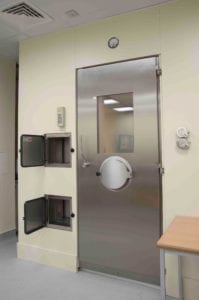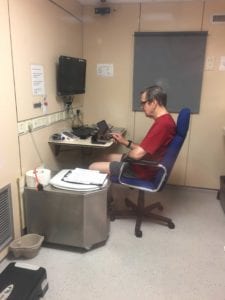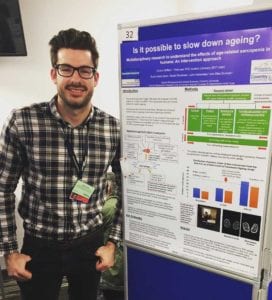Effects of resistance exercise and increased dietary protein intake on 24-hour energy expenditure and substrate oxidation in healthy older men
Population ageing
People worldwide are living longer. By 2050, the world’s population aged 60 years and older is expected to increase from 900 million reported in 2015, to over 2 billion1. Population ageing – defined as the shift in the distribution of a country’s population towards older ages – is increasing at a dramatic pace and is poised to become one of the most significant social transformations of the twenty-first century1. However, as a consequence of population ageing, there is a notable increase in the prevalence of ‘diseases of ageing’2. This has led to both logistical and economic challenges to healthcare systems worldwide1.
Sarcopenia
Over recent decades, one particular concern to the healthspan of older adults is the age-related loss of skeletal muscle mass and strength, termed sarcopenia3. Loss of skeletal muscle mass with age occurs at a rate of 0.5-1% per annum commencing around 45 years of age and has been associated with physical disability, poor quality of life, cognitive decline and a host of poor metabolic outcomes such as altered energy metabolism, insulin resistance and increased risk of type 2 diabetes2,3,4.
Interventions to slow age-related sarcopenia
Research has demonstrated participation in resistance-type exercise and increased dietary protein intake (1.2-1.5 grams of protein per kg of body mass per day) are two effective and safe strategies to slow the age-related loss of skeletal muscle mass and strength5. However, at present, there is limited data on the effects of these interventions either alone, or in combination, on aspects of energy metabolism in older adults.
A 12 week exercise and dietary intervention
To fill the current gap in knowledge, researchers from Coventry University’s Centre for Sport, Exercise and Life Sciences and University Hospitals Coventry and Warwickshire NHS Trust have been running an intervention study over the last 18 months. The research trial (https://clinicaltrials.gov/ct2/show/NCT03299972), led by PhD student Corbin Griffen alongside Professor Derek Renshaw, Dr John Hattersley, Professor Michael Duncan and Professor Martin O. Weickert recruited 33 healthy older men (average age 67 years). Participants were randomly assigned to 1 of 4 groups. Two groups participated in twice weekly resistance exercise sessions and consumed either a whey protein or carbohydrate control supplement twice daily. Alongside these, two groups consumed either a whey protein or carbohydrate control supplement twice daily for 12 weeks without resistance exercise.
Whole-body room calorimeter to measure 24-hour energy expenditure
To assess the effects of each intervention on energy metabolism and markers of metabolic health, all participants resided in a whole-body room calorimeter located at the Human Metabolism Research Unit, University Hospitals Coventry and Warwickshire NHS Trust for 24 hours before and after the 12 week intervention. The calorimeters continuously measured oxygen consumption and carbon dioxide production and all urine was collected to allow for measurement of 24-hour energy expenditure and substrate (carbohydrate, fat and protein) oxidation.


Whole-body room calorimeters used in this study located at the Human Metabolism Research Unit, University Hospitals Coventry and Warwickshire NHS Trust.
All participants completed a standardised calorimeter protocol to examine components of 24-hour energy metabolism (i.e., sleeping, resting, exercise metabolism) under highly controlled conditions. Blood samples were collected routinely to assess markers of appetite and metabolic health.
The study was completed at the end of June 2019 and the findings are expected to be published in 2020.
 Researcher Profile
Researcher Profile
Corbin Griffen is a PhD student based at Coventry University, UK and the Human Metabolism Research Unit, University Hospitals Coventry and Warwickshire NHS Trust.
Contact:
Email: griffenc@uni.coventry.ac.uk
Twitter: @CorbinGriffen
Literature cited:
- World Health Organisation (2019). Ageing and Health. [online] Available at: https://www.who.int/news-room/fact-sheets/detail/ageing-and-health [Accessed: 9 August 2019]
- McLeod, M., et al. (2016). Live strong and prosper: the importance of skeletal muscle strength for healthy ageing. Biogerontology, 17(3), 497-510
- Cruz-Jentoft A.J., et al. (2018). Sarcopenia: revised European consensus on definition and diagnosis. Age and ageing, 48(1), 16-31
- Evans, W. (1997). Functional and metabolic consequences of sarcopenia. The Journal of nutrition, 127(5), 998-1000
- Phillips, S. M. (2015). Nutritional supplements in support of resistance exercise to counter age-related sarcopenia. Advances in nutrition, 6(4),452-60
